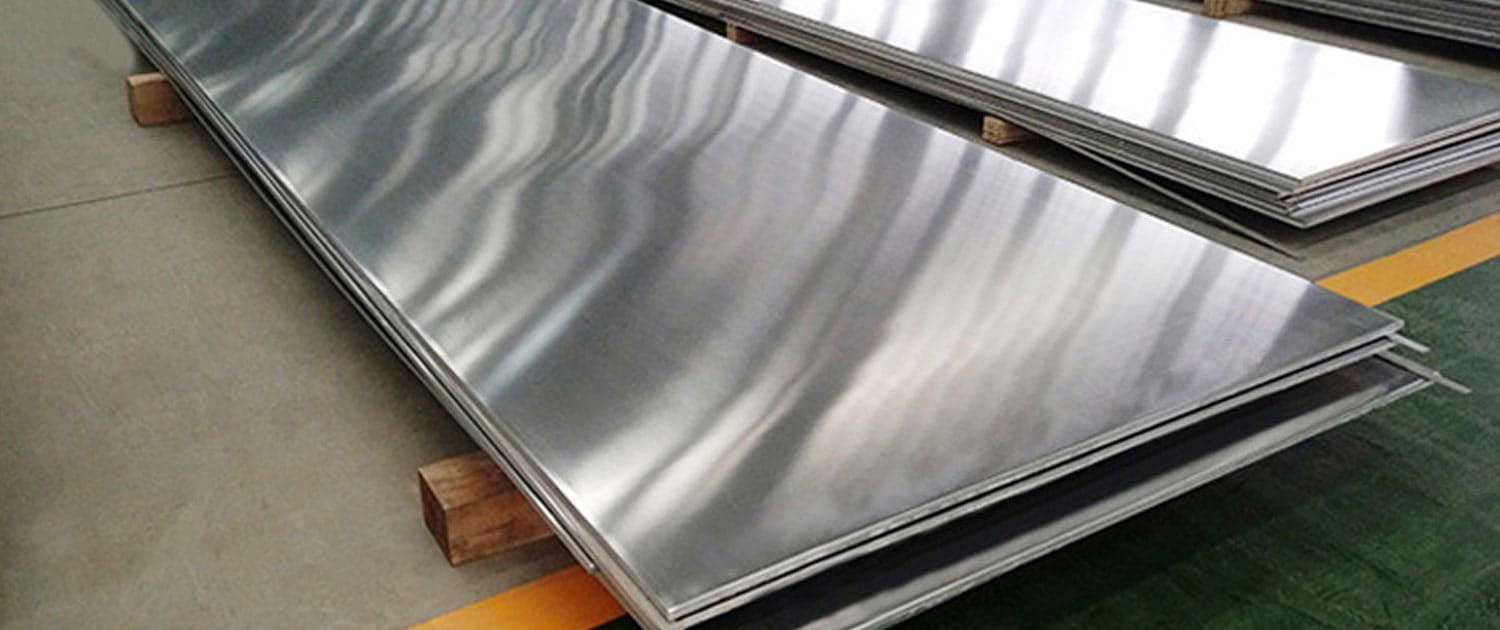In the world of high-performance alloys, Inconel Sheets hold a prominent place due to their exceptional ability to withstand extreme temperatures, corrosive environments, and mechanical stress. Inconel is a family of nickel-chromium-based superalloys, known for their strength and reliability in industries where other materials often fail. Available in sheet form, these alloys provide versatility for fabrication while maintaining high resistance to oxidation and scaling.
This blog provides a comprehensive technical overview of Inconel Sheets, covering their composition, grades, manufacturing standards, properties, and applications across critical industries.
Chemical Composition of Inconel Sheets
Inconel alloys are primarily nickel-based with varying amounts of chromium, iron, and additional alloying elements depending on the grade. A general composition for Inconel Sheets includes:
- Nickel (Ni): 50–72%
- Chromium (Cr): 14–23%
- Iron (Fe): 5–10%
- Molybdenum (Mo): up to 10%
- Niobium (Nb): up to 5%
- Cobalt (Co): up to 2%
- Carbon (C): 0.15% max
This chemical structure provides resistance to both oxidising and reducing environments, making Inconel Sheets highly adaptable to aggressive service conditions.
Mechanical Properties
The mechanical properties of Inconel Sheets vary depending on the grade, but general values include:
- Tensile Strength: 690–1035 MPa
- Yield Strength: 275–600 MPa
- Elongation: 30–45%
- Hardness: 150–220 HB
- Melting Point: 1350–1400°C
These values allow Inconel Sheets to retain their strength under conditions that would degrade or deform conventional alloys.
Grades of Inconel Sheets
Inconel is available in several grades, each optimised for specific environments:
- Inconel 600 Sheets
- Nickel (72%), Chromium (14–17%), Iron balance
- Excellent resistance to oxidation, chloride stress cracking, and carburisation
- Commonly used in chemical and aerospace industries
- Inconel 625 Sheets
- Nickel (58%), Chromium (20–23%), Molybdenum (8–10%)
- Superior resistance to pitting and crevice corrosion
- Ideal for marine, offshore, and chemical processing
- Inconel 718 Sheets
- Nickel (52%), Chromium (19%), Niobium (5%), Molybdenum (3%)
- High strength, creep resistance, and weldability
- Widely used in aerospace turbines and power generation
- Inconel 825 Sheets
- Nickel (42%), Iron (30–35%), Chromium (19–23%)
- Excellent resistance to sulfuric and phosphoric acids
- Used in chemical plants and oil refineries
Manufacturing Standards
Inconel Sheets are manufactured under strict international standards to ensure quality, reliability, and consistency:
- ASTM B168 – Standard specification for Inconel 600 and 601 sheets
- ASTM B443 – Standard for Inconel 625 sheets
- AMS 5596 / 5597 – Aerospace specifications
- ASME Boiler and Pressure Vessel Codes – For applications in pressure vessels
These standards regulate mechanical properties, chemical composition, and dimensional tolerances.
Physical Properties
- Density: 8.4–8.9 g/cm³
- Electrical Resistivity: 1.29 µΩ·m at 20°C
- Thermal Conductivity: 9.8–12.5 W/m·K
- Specific Heat Capacity: 430–460 J/kg·K
Inconel Sheets demonstrate lower thermal conductivity compared to stainless steels, making them excellent for applications where heat retention is critical.
Corrosion Resistance
The most valuable feature of Inconel Sheets is their outstanding corrosion resistance:
- Oxidation Resistance: Withstands oxidation at temperatures up to 1200°C.
- Acid Resistance: Resistant to sulfuric acid, phosphoric acid, nitric acid, and hydrochloric acid.
- Seawater Resistance: High tolerance to chlorides and seawater pitting corrosion.
- Stress-Corrosion Cracking: Superior resistance compared to stainless steels and other nickel alloys.
Fabrication and Welding
Inconel Sheets can be formed using standard processes such as rolling, pressing, and extrusion. However, due to their work-hardening nature, they require specialised tools during machining. Welding can be carried out using:
- TIG Welding
- MIG Welding
- Shielded Metal Arc Welding (SMAW)
Filler materials such as Inconel 625 and Inconel 718 ensure weld integrity.
Applications of Inconel Sheets
The unique properties of Inconel Sheets make them essential in several critical industries:
1. Aerospace Industry
- Gas turbine blades
- Jet engine components
- Heat shields
2. Chemical Processing
- Heat exchangers
- Distillation columns
- Reactor vessels
3. Marine and Offshore Engineering
- Submarine components
- Seawater piping systems
- Offshore oil platforms
4. Power Generation
- Nuclear reactor cores
- Steam generators
- Superheater tubes
5. Automotive Industry
- Turbocharger rotors
- Exhaust systems for high-performance vehicles
Advantages of Inconel Sheets
- Exceptional strength at high and low temperatures
- Superior corrosion and oxidation resistance
- Long service life with low maintenance costs
- Wide range of grades tailored for specific applications
- Compliance with global manufacturing standards
Conclusion
Inconel Sheets are indispensable materials in industries that demand performance in aggressive environments. With their nickel-chromium base, these sheets provide a unique combination of corrosion resistance, mechanical strength, and thermal stability. From aerospace to chemical processing, marine to power generation, Inconel Sheets deliver reliability where other alloys fail.
By adhering to ASTM and ASME standards, manufacturers ensure consistent quality and performance, making Inconel Sheets a trusted choice worldwide. For engineers, designers, and procurement specialists, investing in Inconel Sheets means investing in durability, safety, and long-term efficiency.
